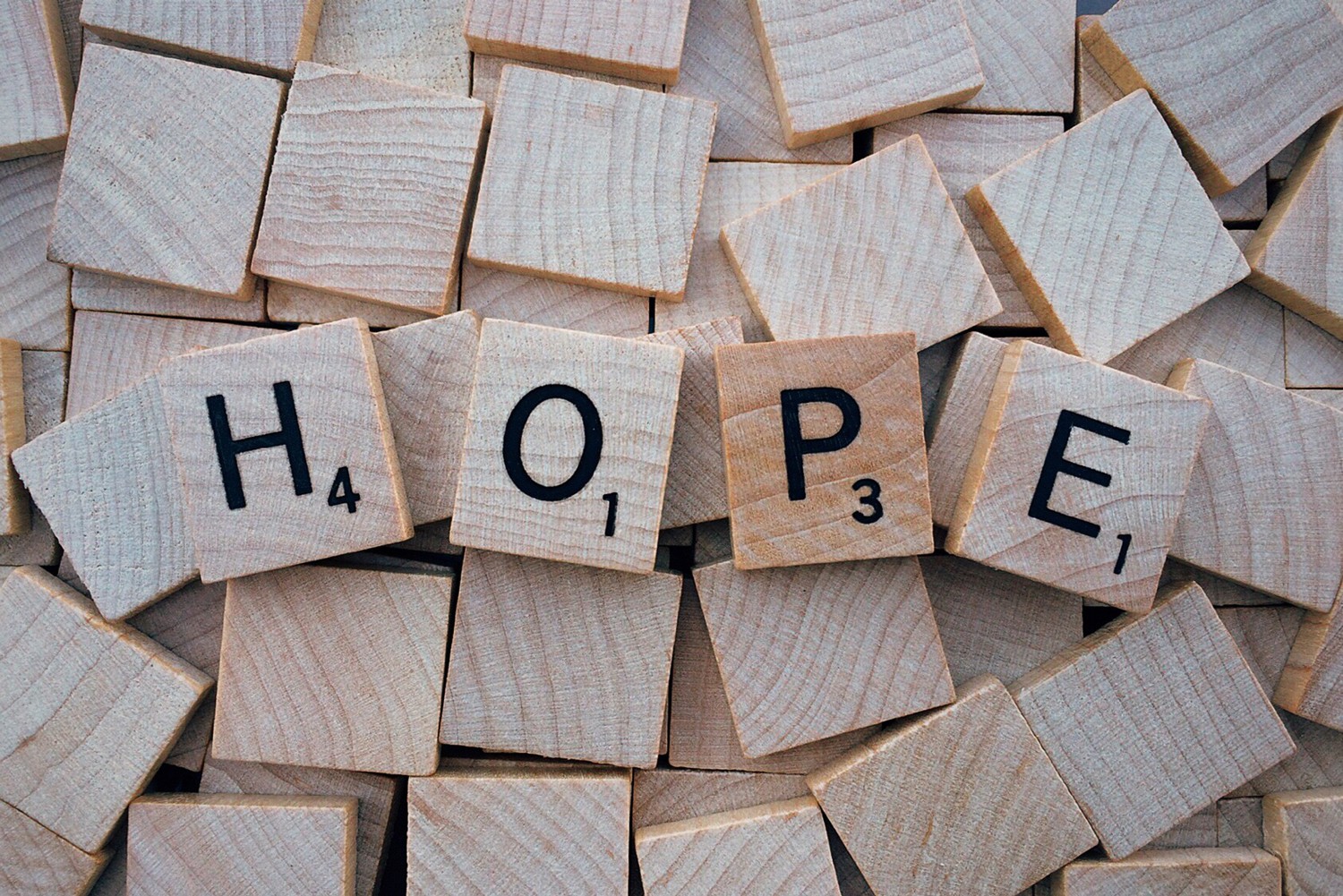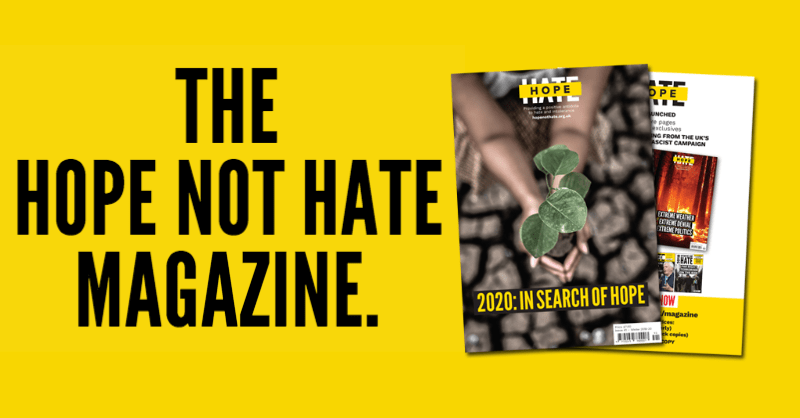HOPE not hate uses cookies to collect information and give you a more personalised experience on our site. You can find more information in our privacy policy. To agree to this, please click accept.
It was only a matter of days into 2020 for the new political reality to become apparent. The Conservative government’s refusal to countenance an extension…

It was only a matter of days into 2020 for the new political reality to become apparent.
The Conservative government’s refusal to countenance an extension to Brexit negotiations with the European Union in order to secure a trade deal, coupled with an insistence that the UK will diverge from EU rules and regulations, makes a hard Brexit increasingly likely.
Bolstered by a large parliamentary majority, this government is clearly on a right-wing and uncompromising trajectory.
The government has also reneged on commitments to EU citizens living in this country, and the fact that only one Conservative backbencher refused to back the Government’s opposition to reuniting child refugees with family members already in the UK – an agreement accepted by the Theresa May government – reflects both the intransigence of Johnson’s regime but also the right-wing shift of new Tory MPs.
Internationally, the picture is equally grim. Huge fires sweeping across Australia remind us of the ever-growing threat of climate change. India’s Prime Minister Narendra Modi introduced changes to the country’s citizenship laws, forcing people to prove they are Indian and, for the first time, creating different rules for Muslim and non-Muslim refugees – unravelling the democratic secular constitution. The US and Iran brought the Middle East to the brink of a major armed conflict.
Against this backdrop, it is easy to see why British people are so pessimistic about the state of the world. Polling carried out by HOPE not hate at the beginning of January showed that 60% of people felt that the next decade will be more dangerous than the last 10 years, with only 4% thinking it will be safer.

The threat of climate change dominates the concerns of people. Half of Britons (52%) list climate change as one of the three most important issues facing the world today, with terrorism (36%) and the environment/pollution (32%) coming next.
Three-quarters of people think the world is facing a climate emergency, with a slightly higher number believing that the very future of humanity is at stake.
It’s not difficult to see why many people, among them probably most HOPE not hate supporters, are feeling down right now. The right-wing trajectory of our politics sees no sign of abating as the new Boris Johnson government joins a growing list of right-wing populist and anti-immigrant governments around the world – including the US, Brazil, India, Australia, Israel, Hungary and Poland.
In this current climate it is easy to despair and it is easy to give up. But it is exactly at moments like this that we need to reorganise and redouble our efforts, because if we don’t then things could get a whole lot worse. From somewhere we must all find some hope, both to meet the challenges we are facing today, but also to ensure that tomorrow can be better.

Domestically, there are a number of legislative battles that are going to happen over the next year. The Government’s insistence that a post-Brexit Britain will see us diverge from EU rules and regulations could mean the unravelling of the rights that improve the quality of our lives. And as we know, a dilution of employment, environment and food and health protections will affect the poorest communities most.
A new post-Brexit Immigration Bill looks likely to become even more draconian, as Johnson seeks to deliver on his promise to reduce immigration, and proposed terrorism legislation, announced in the immediate aftermath of the London Bridge attack, focuses solely on retribution rather than rehabilitation.
As Elisabeth Pop explains new legislation to force us to show photo ID when we vote risks disenfranchising millions of people – the vast majority being poor and from minority communities. This single piece of legislation is the biggest attack on our democracy since all adults got the vote.
However, for HOPE not hate our work goes way beyond the parliamentary agenda. The traditional far right is – organisationally – actually at the weakest in my 30 years as an anti-fascist. There is no visible or viable far-right political party, the street movements are a mere shadow of what they were a few years ago, and Stephen Yaxley-Lennon is an increasingly marginalised figure and politically impotent. UKIP hardly exists as a national political party and even the Brexit Party, which dominated politics last summer, is in the process of folding.

At the same time the progressive movement has never been weaker. Across much of Europe and North America the rise of the populist far right has been at the expense of social democrats. Left-of-centre parties have seen their support plummet among traditional working class supporters, while simultaneously we are seeing the very pillars of liberal democracy – respect for human rights, independent media and judiciary, equality legislation and the welfare state – increasingly being undermined and even dismantled in many countries.
A degree of honesty is now needed. We are losing politically, organisationally and philosophically. The landscape is grim and could easily get worse.
Boris Johnson’s election has been met by a wave of optimism by those who voted for it. Over three-quarters of those with no educational qualifications and who voted Leave in the 2016 Referendum, and for the Conservatives in the recent General Election, believe that his government will make their lives better, with just 8% believing the opposite. This contrasts with a third of the population generally thinking that their lives will improve and half thinking it won’t.
Seventy-two percent (72%) of 2019 Tory voters who backed Leave in the Referendum are optimistic about the future, compared to a national average of just 46%. Two-thirds of these voters believe that the British economy will benefit from Brexit, compared to just 24% of the population as a whole.
This is all great news for the Conservatives – as long as their expectations are delivered. If they are not, then these people will get angry and look for someone to blame.
We face an even bigger challenge with climate change. Unless radical action is taken soon, humanity is facing an almost unthinkable catastrophe. One immediate consequence of rising waters and rising temperatures will be increasing migration, both within and between countries, which in turn will only further fuel anxieties over immigration and migration and potentially boost populism and the far right.
Facing these raft of domestic and international challenges, there has never been a more important time for positive action. There has never been a greater need, in fact, for HOPE not hate.

Over the next year we will be refocusing much of our work to meet these new challenges. After a year of contesting elections and running a campaign against a no-deal Brexit, we will be going back to basics with an emphasis on building local HOPE not hate groups in the communities most susceptible to right-wing populist messages, building resilience within these communities and exposing and challenging the far right in whatever guise they appear.
However, we are also acutely aware that progressive movements need to start to work together more effectively, not least because the threats we are facing are becoming increasingly intertwined. The far right no longer just poses a threat to minority communities, but is increasingly challenging human rights, democratic institutions and the media. To effectively counter this far-right threat we must work more collaboratively with organisations who are involved in these other issues.
Climate change is a perfect example. It makes absolute sense for us to begin to work more closely with environmental and migrant rights groups. Far-right networks are among the main climate change deniers in Europe, and yet these very same people and organisations will seek to exploit the growing movement of people that result from climate change’s effects. Likewise we must do better at sharing our skills, resources and experiences. No-one has the monopoly of knowledge and with ever-increasing threats, coupled with the growing cost of data and utilising new technology, there is a strong economic and organisational case to share resources and skills.
While we should become more sophisticated in what we do, it is just as important that we offer people a positive alternative. We challenge their hate with HOPE.

Over the coming year we will develop a number of new initiatives and approaches that seek to bring communities together around what we have in common, both to show that hate does not have a monopoly in communities, but also to rally people together.
We began using the name HOPE not hate back in 2004 precisely because our research showed that people wanted hope, that they wanted to support a positive agenda and not just be against something. While this might appear slightly counter-intuitive, given the serious threats we are facing today, it is in fact essential.
I have great trust in people. When offered a choice between hope and hate the vast majority will choose the former. It is common sense that most people want to live together in peaceful communities – and of course these communities will be in a far better position to face the threats if they are united and content.
However, hope can never be an abstract concept, divorced from the daily lives of the people with who we want and need to engage. We need to speak their language, understand and appreciate their concerns and find real solutions to their problems. Sometimes this will require us to address difficult issues, but unless we can do so then we have little chance to connect with these communities.
HOPE not hate has a lot of work to do over the next 12 months – we are facing a lot of threats – and we will not be able to achieve our goals without the help of our supporters.
In these challenging times, when it is easy to feel so low and despondent, we are calling on our supporters to get active, get involved and make a stand. It is only by working together, both as HOPE not hate but also with the wider progressive eco-system, that we can meet the threats and ensure that HOPE does indeed triumph over hate.
You can see a selection of these pics (©Andrew Testa / Panos) in the full magazine.
Nick Lowles is CEO of HOPE not hate.
